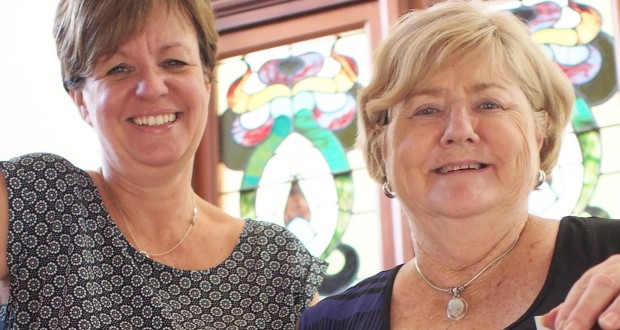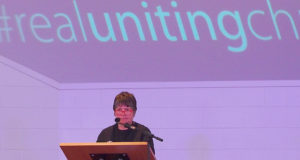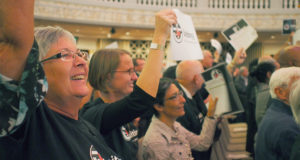A grand old house located at the Uniting Church Centre in Brisbane has undergone a transformation into the Wesley Hospital’s new Choices cancer support and wellness centre. Dianne Jensen reports.
The massive front door is open for visitors at the heritage-listed brick residence at the heart of the Queensland Synod office and Raymont Residential College in Auchenflower, Brisbane. Drysllwyn, built by mining entrepreneur William Davies in 1904-1905, was vacated in 2014 by Trinity Theological College and is now the home of the Wesley Hospital’s Choices cancer support and wellness centre.
With the help of Choices volunteers, the spacious rooms and wide verandas have been furnished with an eclectic mix of artwork, antiques and comfortable furniture to provide support services for women and men affected by cancer. The facility offers specialist nurse support, emotional support, post-surgery and treatment rehabilitation and a variety of complimentary therapies and peer support.
Clinical nurse manager Janine Porter-Steele says that the decision to broaden the scope of the Kim Walters Choices Program was a natural development after almost 18 years of supporting women affected by breast and gynaecological cancer.
“We realised that the support we were offering was beneficial regardless of the type of cancer. We were also very aware that this comprehensive support was not being offered elsewhere.”
The centre focuses on promoting wellness through and beyond cancer treatment, says Janine.
“Research shows us that when people have chemotherapy, radiotherapy and other treatments they may have some side effects that can affect their quality of life. Wellness is about mitigating those effects. Also, generally after a diagnosis of cancer people want to reduce the risks of it happening again and the risks of other chronic disease or illness, so a large focus is on physical health through good nutrition and appropriate exercise and emotional and mental wellbeing.”
Survivorship issues go beyond medical outcomes, she adds.
“Survivorship covers a wide range of topics, but in short it’s about ensuring people have control over their lives and have choices about how that occurs. Choices aims to help achieve this by connecting them to people and programs that enable them to talk openly about their diagnosis and the after-effects of treatments.”
 JourneyOnline
JourneyOnline







